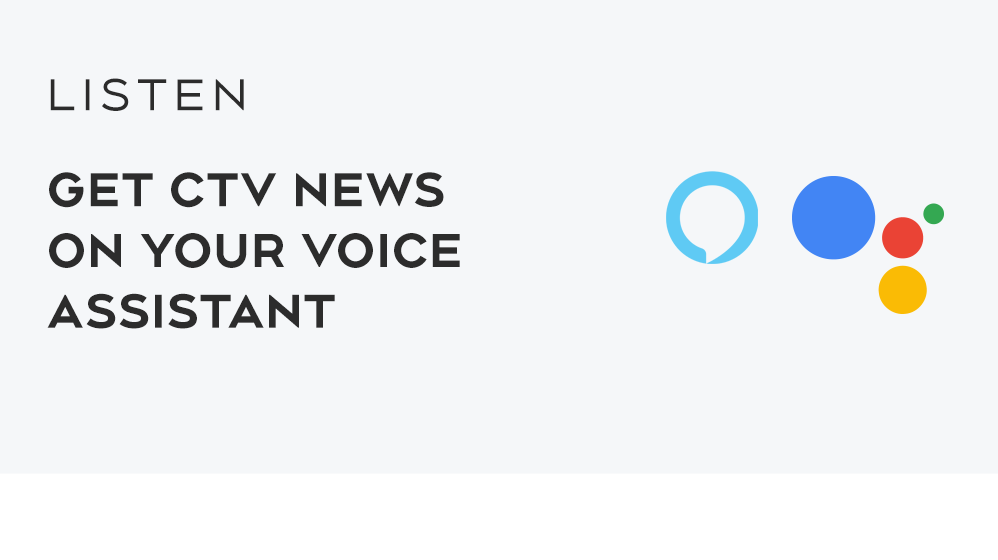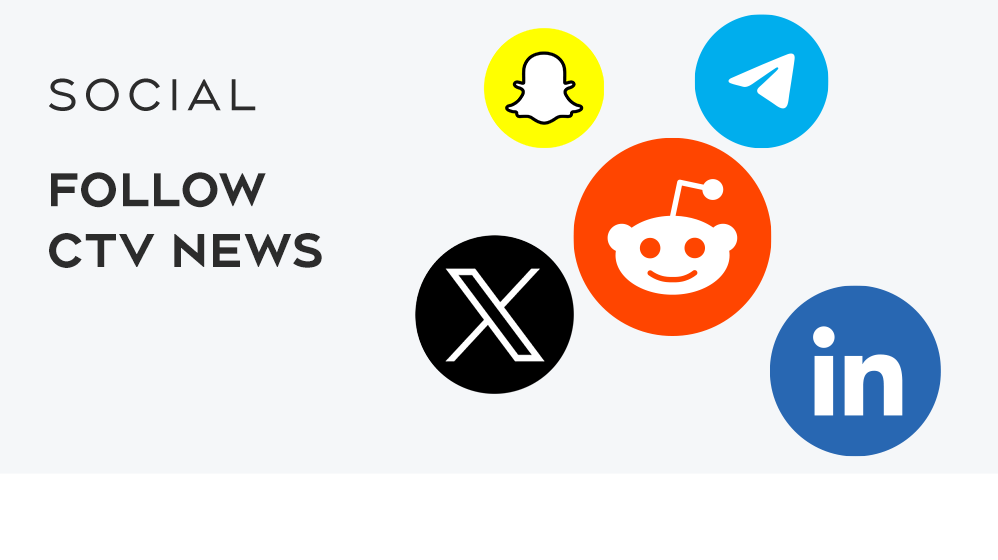The first public hearings on foreign interference in Canada have begun. What you need to know
The public hearings portion of the federal inquiry into foreign interference in Canadian elections and democratic institutions got underway this week.
After months of behind-the-scenes preparations, including deciding which key players will be able to participate and establishing parameters for the national security and intelligence-centric process, commissioner Marie-Josee Hogue has begun presiding over the first open phase of the national probe.
Heading into this process, here's what you need to know.
What prompted this?
A national public inquiry into allegations of attempted foreign election interference was a move the federal Liberal minority government came to, reluctantly, last fall.
After extensive deliberations, parliamentary hearings and a failed special rapporteur process, Minister of Public Safety, Democratic Institutions and Intergovernmental Affairs Dominic LeBlanc announced in September that a Quebec Court of Appeal justice would take on the task of examining the issue.
While concern around potential meddling in the 2019 and 2021 federal campaigns — based in part on media reports citing unnamed intelligence sources and leaked documents — was what kicked off this controversy, the inquiry has been given a broader mandate.
What is the inquiry's scope?
While the first phase of Hogue's work will focus on "the interference that China, Russia and other foreign actors may have engaged in" during the last two elections, it will also dig into the flow of information within the federal government in connection with these alleged instances.
The inquiry also recently announced that it is specifically requesting information and documents from the federal government regarding alleged interference by India in connection to the 2019 and 2021 elections.
Overall, the examination will include assessing the flow of information within the federal government, including communications between elected officials, the Security and Intelligence Threats to Elections (SITE) Task Force and the Critical Election Incident Public Protocol panel during the lead up to, and through, the 43rd and 44th general elections, and in the weeks following.
Who knew what, who was alerted at the time and how the suite of responsible federal security agencies handled these meddling threats have all been questions central to the examinations previously undertaken by parliamentarians on this file.
The second phase of the public inquiry will focus on the federal government's capacity and capabilities to "detect, deter and counter such interference." This second more forward-looking portion is meant to help Canada shore up its democratic processes against future threats as the next federal election approaches.
What is the timeline?
The first set of public hearings began Jan. 29 in Ottawa with an opening statement by Hogue.
This round of "preliminary" hearings will carry over five days and focus on "the challenge of making as much of the information received by the Commission as possible public," according to the inquiry's website.
Among those on the witness list for week one are national security expert professors, former CSIS director Richard Fadden, current CSIS director David Vigneault, deputy chief of signals intelligence at the Communications Security Establishment (CSE) Alia Tayyeb, deputy national security and intelligence adviser Dan Rogers, and Public Safety, Democratic Institutions and Intergovernmental Affairs Minister Dominic LeBlanc.
The commission will then take a pause on public hearings until March when the examination of the alleged past election interference by various foreign states and non-state actors will begins.
A third set of hearings, expected to be related to the second phase of the inquiry's mandate, is tentatively scheduled to begin in September 2024.
After raising concerns with the overall condensed timeline that would have required Hogue to submit an interim report by Feb. 29, the commissioner was granted an extension to May 3.
"The purpose of this postponement is to give meaning and purpose to the preliminary hearings, and to allow more time to maximize the transparency of the Commission's work," commissioner Hogue said.
She has also issued a warning to the federal government and other sources that the inquiry's ability to meet its deadlines will depend on the prompt production of relevant documents, an issue that was raised during the "Freedom Convoy" commission.
Her final report is still due to the government, in both official languages, by Dec. 31, 2024.
Who are the key players?
While Hogue is playing the lead role in this process, she is accompanied by lead counsel for the commission Shantona Chaudhury.
If that name sounds familiar, it's because Chaudhury was one of the Public Order Emergency Commission's (POEC) co-counsels who spent weeks questioning witnesses in open hearings about the Emergencies Act invocation.
Hogue has said Chaudhury will lean on her national security law expertise in leading the team hired to conduct the foreign interference probe. Included in this team are senior policy advisor Paul Cavalluzzo, who was lead counsel for the inquiry into the Maher Arar matter, and research counsel Genevieve Carter, who played a similar role during the Charbonneau Commission.
Further, the public hearings will include "fact witnesses" and experts. There is also the entire roster of parties and individuals that have been granted "standing" and will play a role in this process.
Among those Hogue has approved to participate in some capacity during either both or one of the phases of the inquiry are the federal Conservative and New Democratic parties, Conservative MP Michael Chong, Liberal-turned-Independent MP Han Dong, and former Conservative MP and past leader Erin O'Toole.
A number of organizations representing Chinese, Russian, Ukrainian, Iranian and Indian diaspora groups will also play a role, as will a joint "media coalition" and a coalition of former intelligence officials.
Can Canadians participate?
The public has been invited to attend the commission's preliminary hearings in-person, but the proceedings will also be available to stream on the inquiry's website.
The commission is also opening up a process for the public to submit information to the inquiry, including providing observations, suggestions and relevant experience.
As part of this, the commission has promised, if needed, to put proper identity protections in place.
The inquiry has designated a specific confidential email address that can be used to transmit information, in confidence: conf@pifi-epie.gc.ca
What are the limitations?
The balance between providing the public transparency, and protecting classified intelligence, is already proving to be a delicate issue the inquiry is grappling with.
The spring decision by then-special rapporteur David Johnston not to recommend an inquiry cited the inability to satisfy the concerns of Canadians due to the national security limitations on making key details public.
Hogue has said she's mindful of this challenge but has vowed the inquiry is "committed to accomplishing its mandate with independence, impartiality, fairness, thoroughness, expedition, proportionality, and transparency."
Minister LeBlanc has said it will be up to Hogue to determine which aspects of the inquiry are public versus in camera, or behind closed doors, and has vowed the commission will have "full access" to all relevant cabinet documents.
"She will in her judgment, based on the legal advice the commission would receive from the commission lawyers … decide how and what hearings will be made public."
With files from CTV News' Spencer Van Dyk
IN DEPTH

As Poilievre sides with Smith on trans restrictions, former Conservative candidate says he's 'playing with fire'
Siding with Alberta Premier Danielle Smith on her proposed restrictions on transgender youth, Conservative Leader Pierre Poilievre confirmed Wednesday that he is against trans and non-binary minors using puberty blockers.
The first public hearings on foreign interference in Canada have begun. What you need to know
The public hearings portion of the federal inquiry into foreign interference in Canadian elections and democratic institutions got underway this week. Heading into this process, here's what you need to know.
TREND LINE What Nanos' tracking tells us about Canadians' mood, party preference heading into 2024
Heading into a new year, Canadians aren't feeling overly optimistic about the direction the country is heading, with the number of voters indicating negative views about the federal government's performance at the highest in a decade, national tracking from Nanos Research shows.
Here's why Trudeau has a new House leader, temporarily
Liberal MP Steven MacKinnon was sworn in as Prime Minister Justin Trudeau's government House leader on Monday, taking on the position temporarily, as Karina Gould begins her maternity leave.
Supports for passengers, farmers, artists: 7 bills from MPs and Senators to watch in 2024
When parliamentarians return to Ottawa in a few weeks to kick off the 2024 sitting, there are a few bills from MPs and senators that will be worth keeping an eye on, from a 'gutted' proposal to offer a carbon tax break to farmers, to an initiative aimed at improving Canada's DNA data bank.
Opinion

opinion Don Martin: ArriveCan debacle may be even worse than we know from auditor's report
It's been 22 years since a former auditor general blasted the Chretien government after it 'broke just about every rule in the book' in handing out private sector contracts in the sponsorship scandal. In his column for CTVNews.ca, Don Martin says the book has been broken anew with everything that went on behind the scenes of the 'dreaded' ArriveCan app.
opinion Don Martin: Despite his horrible year, Trudeau's determined to roll the dice again
In his column for CTVNews.ca, political commentator Don Martin says you can't help but admire Justin Trudeau's defiance and audacity of hope despite his 'horrible' 2023, as it appears Trudeau is insisting on leading the Liberals into the next federal election.
opinion Don Martin: Why Danielle Smith is my political newsmaker of the year
In his column for CTVNews.ca, political commentator Don Martin argues why Alberta Premier Danielle Smith deserves to be Canada's political newsmaker for 2023.
opinion Don Martin: Greg Fergus risks becoming the shortest serving Speaker in our history
House Speaker Greg Fergus could face a parliamentary committee inquisition where his fate might hang on a few supportive NDP votes. But political columnist Don Martin says this NDP support might be shaky, given how one possible replacement is herself a New Democrat.
opinion Don Martin: With Trudeau resignation fever rising, a Conservative nightmare appears
With speculation rising that Prime Minister Justin Trudeau will follow his father's footsteps in the snow to a pre-election resignation, political columnist Don Martin focuses on one Liberal cabinet minister who's emerging as leadership material -- and who stands out as a fresh-faced contrast to the often 'angry and abrasive' leader of the Conservatives.
CTVNews.ca Top Stories

Lynx Air files for creditor protection, final flight scheduled for Feb. 26
Lynx Air announced Thursday that it has filed for creditor protection from the Court of King’s Bench of Alberta. The airline said in a release that it will cease operations at midnight, Monday, Feb. 26, with flights continuing until then.
U.S. achieves first moon landing in half-century with private spacecraft
A spacecraft built and flown by Texas-based company Intuitive Machines landed near the moon's south pole on Thursday, the first U.S. touchdown on the lunar surface in more than half a century and the first ever achieved by the private sector.
Couple detained at Punta Cana airport claim household product was mistaken for cocaine
A Waterloo couple is grateful to be back home after they say they were detained for several hours at a Punta Cana airport, accused of carrying drugs.
Claws come out for federal minister who shared picture of lobster lunch in Asia
A photo of federal Agriculture Minister Lawrence MacAulay eating lobster in Malaysia during an official trip has some people seeing red.
Air Canada passengers recount 'hellish journey' to Toronto after 10 delays, 1 cancelled flight
Ten delays, one cancellation, and about 27 hours later, Air Canada travellers trying to jet out of Fort Lauderdale finally made what one of them is calling a 'hellish journey' back to Toronto.
'Facial recognition' error message on vending machine sparks concern at University of Waterloo
A set of smart vending machines at the University of Waterloo is expected to be removed from campus after students raised privacy concerns about their software.
Judge rejects Trump’s request to delay finalizing US$355 million civil fraud order
The judge overseeing the US$355 million civil fraud case has denied Donald Trump’s request to delay the judgment for a month.
B.C. will implement a new 20% 'flipping tax' on homes: What you need to know
Premier David Eby has been clear that speculators are in his crosshairs, and with the 2024 budget his government has announced details of a new 'BC Home Flipping Tax.'
Sex trafficking survivor shares her story of abuse with the hope of saving a life
Research has shown that sex trafficking is rampant. For Canadians reading this story this means that within one kilometre from where you’re presently located, a young person is being lured into sex trafficking.























